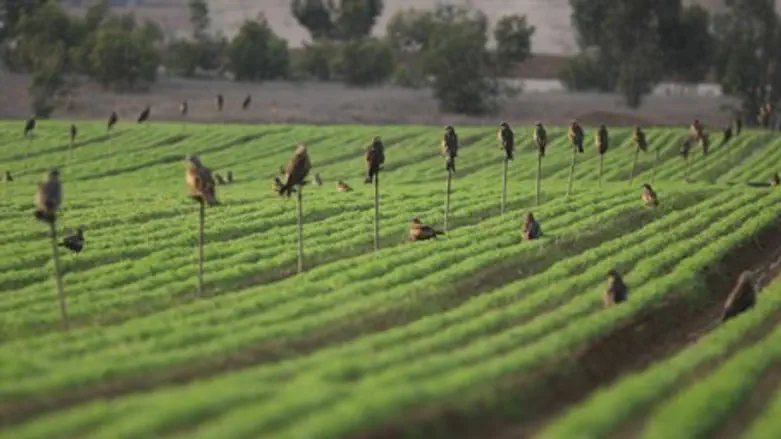
Israel wants to use its leading edge in agricultural innovation to help improve food production across Africa, Prime Minister Binyamin Netanyahu said in Milan on Thursday.
Visiting Israel's pavilion at the World Expo on the outskirts of the city, Netanyahu said cooperation with Italy in Africa would be top of his agenda at talks with his Italian counterpart Matteo Renzi in Florence on Saturday.
The Israeli premier, who is on his first major overseas trip since being re-elected in June, said Israel was a pioneer in the fields of
drip-irrigation, water recycling and desalination.
"We have ten times the population we had when the state was founded 67 years ago, and half the rainfall, yet we have no water problems because we were able to solve this with all these techniques," he said.
"Now we are prepared - and are already doing our share to take this information to people around the world so they can have water, they can have crops, they can have cows that produce more milk and many other things that offer betterment for mankind."
"Italy and Israel are today cooperating in one African country to better their agriculture," he added. "Why one? Why not twenty, why not thirty? If we pool our resources, our knowledge, our technology we can help many, many countries in Africa to not only better agriculture and to better life."
Netanyahu was speaking in front of a giant "vertical field" of wheat, rice and corn that has helped to make Israel's pavilion one of the top draws at the six-month long world fair.
The structure, which is 12 meters tall (39 ft.) and 70 meters (230 ft.) long, is intended to showcase Israeli expertise in the drip-irrigation technology that has enabled the cultivation of crops in arid areas around the world after being first developed on a kibbutz in the Negev desert.
The innovative 'standing-up' field was developed specially for the Expo but pavilion spokesman Menachem Gantz said it is hoped the design could serve as a model for architects seeking to create green spaces in tight urban areas.
The field is accompanied by a walk-through video exhibition outlining Israel's role in agricultural innovation, from Zionist agronomist's Aaron Aaronsohn's 1906 discovery of "the mother of wheat" on Mount Hermon to the development of commercially viable cherry tomatoes in the 1990s.
According to Gantz, nearly one million people have visited the exhibition since it opened on May 1.
"The theme of the Expo is 'Feeding the Planet, Energy for Life,' and we have represented that," Gantz said to AFP. "These kind of drip-drip systems enable crops to be grown with 70 percent less water than traditional irrigation takes and, for rice, the precision of the watering means the yields are twice as high."
"Most people now see Israel as a high-tech country but that culture has it roots in the way we had to innovate to get as much as we could from the land."
After his tour of the Israeli pavilion, Netanyahu was scheduled to take in those of Italy, the United States and China.
After that he has no official engagements until his Saturday evening meeting with Renzi.